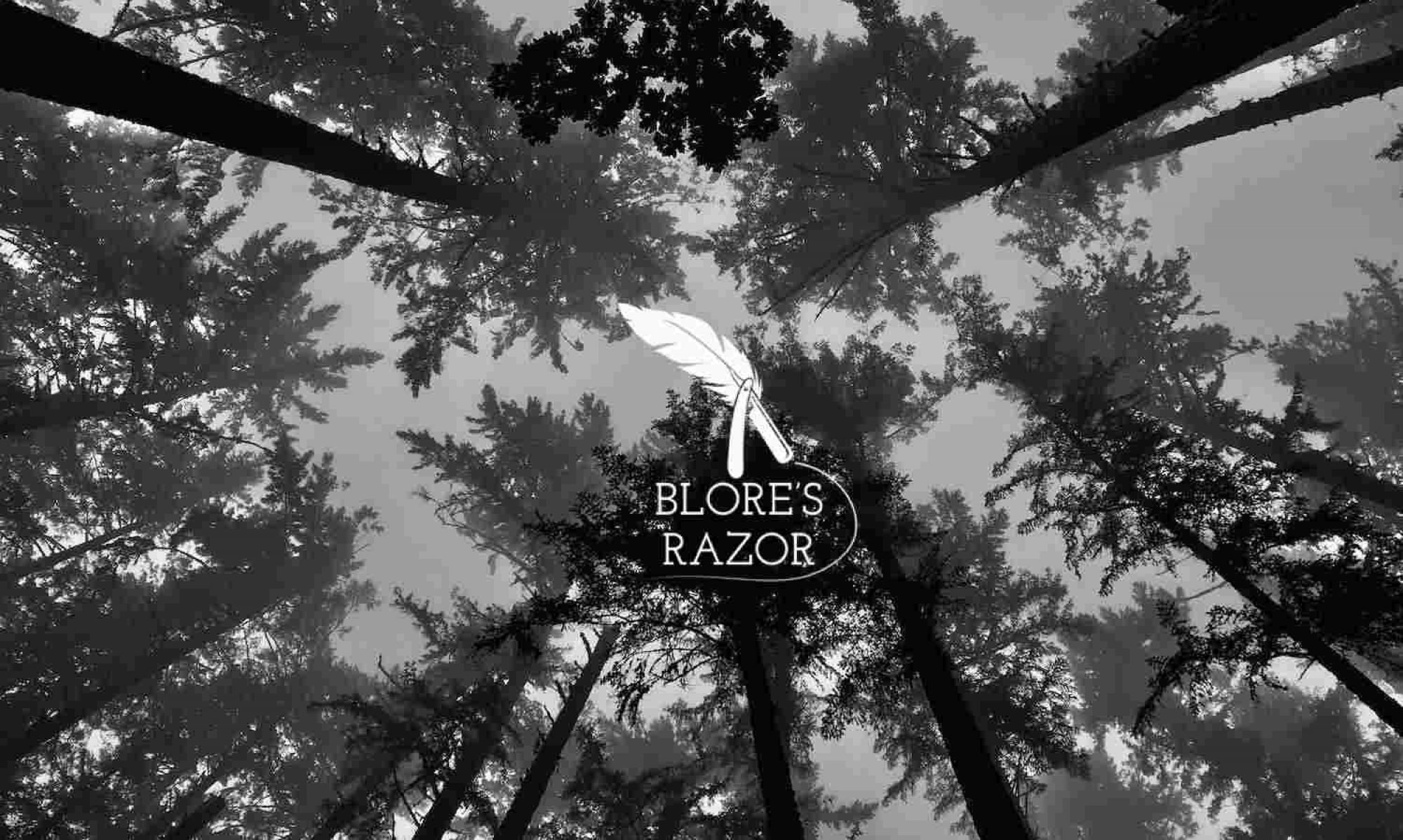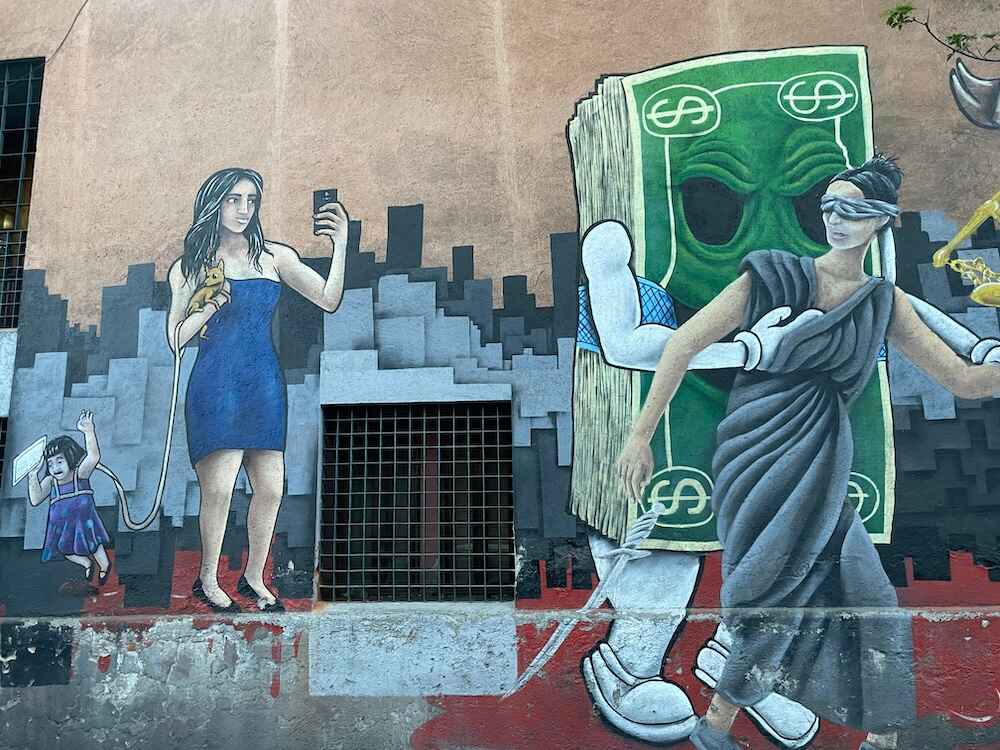My first day back in the U.S., a man collapsed on the sidewalk across the street. He’d fallen so suddenly onto his back that his stained sneaker slid into the shoulder of busy W. 11th Street. A ragtag group surrounded the man, laying down their heavy backpacks and tying up their barking dogs. A woman stopped her truck in traffic, dodged several cars, and began to administer chest compressions. The smoke shop clerk threw open his door and unwrapped a canister of NARCAN nasal spray. He did this with a calmness indicating it wasn’t the first overdose he’d witnessed on that corner, or his second, or his third. His face announced that it was another day in America.
With that man on the ground, not breathing, sirens roaring in the distance, I froze with tears dripping onto my collar. I was jolted by the contrast of where I’d been 24 hours earlier: sunny, colorful, jubilant. I had just returned after six weeks on my “Sabaticán”—the annual trip I take to Mexico to escape late winter in Eugene, Oregon. Our southern neighbor has plenty of problems, but widespread drug overdoses aren’t among them. The scale of these human tragedies is unique to the U.S., particularly among countries as rich as ours.
Preventable drug overdose deaths have skyrocketed in recent years. In 2019, 62,172 folks died, compared to 100,105 in 2022—a staggering 797 percent increase since 1999. Opiates such as fentanyl account for the vast majority.
I was an addiction specialist at a methadone clinic in San Francisco from 2010 to 2012. Working in addiction broke me—I was too wet behind the ears to realize that my 50 clients wouldn’t benefit from our underfunded clinic’s treatment model or from my experiences. Some of them openly mocked my “fancy degrees” and accorded more respect to the counselors who’d actually struggled with heroin and gotten clean. I get it. In their shoes, I wouldn’t have wanted to hear a damn word from me either. What the hell did I really know about opiates that didn’t come from a book?
More than a decade later, I’ve realized something about American addiction. Sure, it’s related to the easy availability of everything we could desire—food, drugs, gambling, shopping, video games, etc. But why do so many Americans become addicted to anything in the first place? It’s because we suffer from being lonely, status-driven, and fearful of losing what little we have. The social and economic stresses in the U.S.—especially the exorbitant costs of shelter, education, and healthcare—have devastated people. That pressure breeds an addiction to food, alcohol, drugs, consumerism, and easy entertainment. Without the embrace of a community and a guarantee of what our people need, we’ll continue to withdraw and die by our own hands.
Mexico, by contrast, has strong communities and families, less emphasis on “what someone does” for work, and a constitutional guarantee to healthcare. There, drug overdoses and homelessness are virtually non-existent.
Further, in our hyper-individualistic country, when someone fails, there is no social safety net to catch them, and we blame the person’s internal nature. Addiction is viewed as a personal failing that elicits little empathy. Instead, it should be considered a sociocultural disease. It’s distressing that our working and middle classes are one medical emergency away from financial ruin while our richest families accumulate obscene fortunes rather than sweating it out like the rest of us.
We should be sharpening our pitchforks at the injustice of it all, but we get dazzled by cheap technology and easy entertainment. We are each a community of one—and how can one person raise a sword or a pen against the tidal wave of a callous culture, wealth inequality, and crumbling public investments? Without the tools of widespread high-quality education, healthcare, infrastructure, childcare, eldercare, housing, and public trust, we’re left to turn inward to our addictions. The luckiest among us stare at a phone screen for several hours a day—the not-so-lucky collapse on public sidewalks.
That man did live, by the way. I believe that the woman who stopped her truck in traffic saved his life and gave him the heartbeats he needed while the NARCAN took effect. There are good people everywhere—folks who, on instinct, would dodge traffic to give an unkempt, unresponsive man chest compressions.
But better than counting on heroes like her, we need to shift as a people toward more compassionate, communitarian values in our culture, government, and institutions. Individualism does not make sense for an inherently social species; our “everyone for themselves” ethos is the disease. Without this realignment, we’ll continue to witness Americans dying as we go about the individual business of keeping our own heads barely above water.


A great essay on current American culture. if nothing else this is a great conversation starter. Democracy, as always, is a damn mess. Perhaps I’m old-fashioned but I still think it’s better than the alternatives. That said, it certainly due for a good tuneup!!
Thanks for reading!